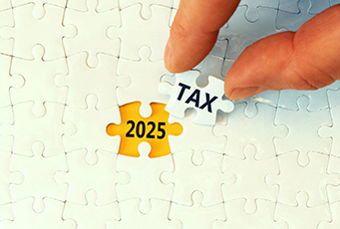With uncertainty surrounding investment markets, homeowners with cash are questioning whether to pay off their mortgage or invest the extra dollars. The answer is……it depends!
Because no one can predict the returns that investors will receive over the next ten years, it is impossible to predict with certainty which strategy is better for a homeowner with extra cash. However, there are two ways to consider this question. One is purely financial and the other is based on your personal feelings regarding debt.
Financial Analysis: Mortgage Rate versus Potential Investment Return
If your mortgage interest rate is greater than the investment return that you can reasonably expect to earn, then it may make sense to apply the extra cash to your mortgage. If not, then over the long-term, it may be to your financial advantage to invest the cash and continue to make monthly mortgage payments.
For example: Assume your mortgage interest rate is 4.50%. If your investment portfolio is allocated half to fixed income and half to the stock market, historical returns indicate a reasonable expected long-term return of 7%. As a result, it will likely make sense to retain your 4.50% mortgage and invest your cash. If you are intentionally investing on a conservative basis and the expected investment return of your portfolio is 3% to 4%, then paying off a 4.50% mortgage would seem appropriate.
Current Stock Market Environment
When evaluating your options, do not let the current stock market fluctuations keep you from making the appropriate decision. When the stock market is sluggish, many people choose not to invest for fear of losing money. However, a longer-term perspective is necessary. If the stock market is appropriate for your extra cash, investing during a market down cycle can potentially result in significant future growth for your portfolio.
Tax Benefits
If you itemize your deductions on Schedule A of your federal tax return, the mortgage interest you pay reduces your taxable income. With the passage of the Tax Cuts and Jobs Act effective in 2018, you can deduct your interest expenses for qualified home purchases up to $750,000 (down from prior limits of $1,000,000) and $375,000 for married filing separately (down from $500,000). These limits apply only to loans originated after 2017. Interest on home equity debt is deductible up to $100,000 ($50,000 married filing separately) if the proceeds are used to improve the taxpayer’s home.
Therefore, if you pay off your mortgage early, you will lose this itemized deduction. The impact of the interest deduction is essentially lowering your mortgage rate. In our example, the net effective mortgage interest rate may be reduced from 4.50% to 3.3% depending on your marginal tax rate.
Personal Comfort: Desire to be Mortgage-Free
Your personal comfort with debt is as important as the aforementioned financial analysis. If you are by nature risk-adverse, then paying down your mortgage may be the best option regardless of the mortgage rate. For some homeowners, there is a feeling of security and comfort in being mortgage free, especially at the time of retirement. If being debt free makes you sleep better at night; then consider paying off the mortgage.
Summary
If you have extra cash and a mortgage, analyze the financial and personal consequences of having the debt. However, there may be other factors that should be involved in your decision making as well, such as cash flow issues, saving goals, and other debts besides your mortgage. It is important to review your personal financial plan to ensure your decision supports your overall goals.





